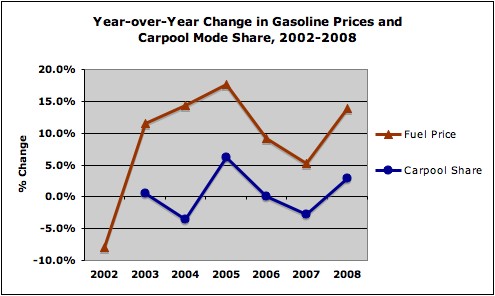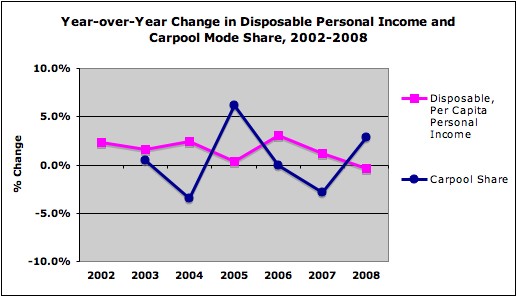The relationship between high gasoline prices, disposable personal income and changes in aggregate, nationwide rideshare participation from 2002 through 2008 is interesting. As expected, changes in the cost of gasoline and rideshare participation tend to move in the same direction. The relationship between gasoline prices and rideshare participation has a Pearson’s R (a measure or correlation between two variables) value of 0.65, suggesting a reasonably strong correlation, but highlighting that there are other factors influencing rideshare participation. In some respects, the price of gasoline may not really be the underlying cause for rideshare behavior changes; rather, it seems likely that tighter household budgets would be more indicative. If one compares the year-over-year change in rideshare participation and per capita disposable personal income (in real terms), one can see that the two move in opposite directions, as one would expect; as disposable income decreases, rideshare participation increases. The Pearson R value is -0.62 suggesting a similarly strong, inverse correlation as was observed between real gasoline prices and rideshare participation. This is an important observation as it may suggest that non-transportation related strains on household budgets (such as an economic downturn, or lower wage growth) are as likely to influence rideshare participation as gasoline prices are. If this hypothesis holds, one should expect to see continued high levels of ridesharing in 2009/2010 due to continued economic weakness, even with the substantial decreases in retail gasoline prices.


Posted by admin on Friday, August 27th, 2010 at 7:53 am.



